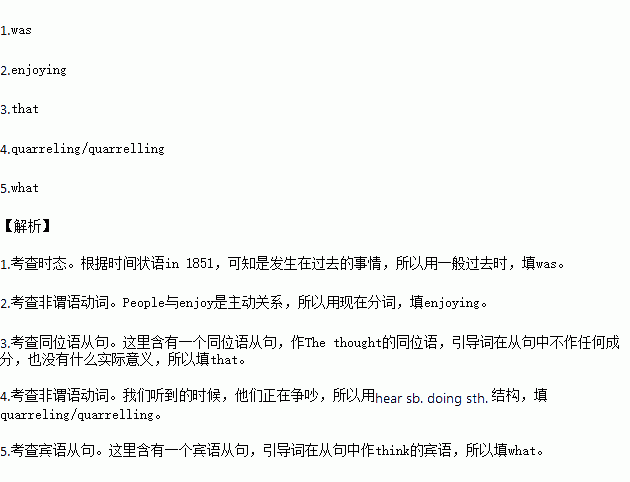题目内容
1.The New York Times ______ (be) first published in 1851.
2.The park was full of people, ______ (enjoy) themselves in the sunshine.
3.The thought came to him ______ maybe he should have said sorry to his father.
4.We heard them ______ (quarrel) throunghout dinner yesterday.
5.They are working together to make ______ they think is the best product.
练习册系列答案
 举一反三单元同步过关卷系列答案
举一反三单元同步过关卷系列答案
相关题目

